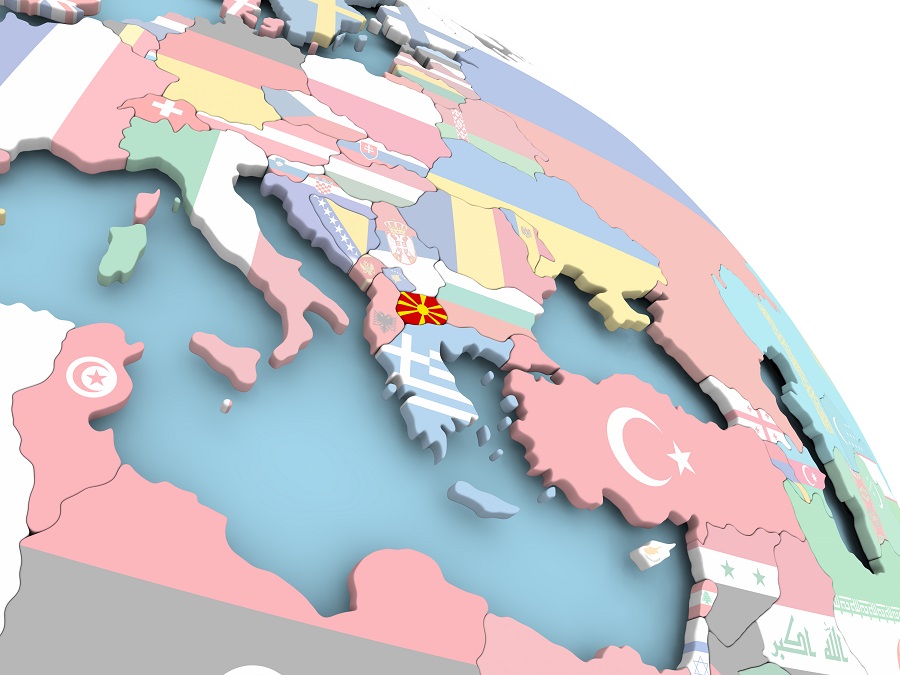What’s in a name?
In January, leaders from Greece and Macedonia began discussions regarding a longstanding dispute between the two countries: Macedonia’s name. To some, this kind of dispute may seem petty, but a country’s name is tied up in its citizens’ patriotism and identity, and when a country’s name is challenged by another, or changed due to internal pressures, it can turn into a complicated situation.
In the case of Macedonia, the country took on the name when it gained independence in 1991. Greece, however, refuses to recognize the name without a qualifier—the country’s official name in the UN is The Former Yugoslav Republic of Macedonia. However, Macedonia is now interested in joining NATO, which means the time has come to settle this dispute with Greece, or continue to face the its southern neighbor’s veto powers.
Why does Greece feel so strongly about the name Macedonia? Because the name has a strong position in its own country’s history and heritage. The region of Macedonia in Greece, according to Bloomberg, “was Alexander the Great’s stronghold in ancient times, and today is split into eastern, western and central administrative divisions.” To Greece, the name signifies its historical strength and influence, and sees its northern neighbor’s usage of it as an affront to that legacy.
For now, we will have to wait and see how the dispute plays out. If Macedonia wants to be accepted into NATO, it may have to concede to Greece in some way or another. Greece may have to make concessions, too, in order to maintain influence in the Balkans.
A country's name can be a complicated issue, and in some cases, it's important to know ahead of time not only what name to refer to the country by, but whether or not that name is controversial to anyone inside or outside of that nation's borders. Here, we look at a few other countries that have adopted different naming policies.
Georgia
You may not know this, but the country of Georgia is recognized by a number of different names. Armenians call it Vrastan, a number of countries call it Gruziya, and even in Georgia itself, the Georgian name for the country is Sakart’velo. The government does not object to most of the names, but in the case of Gruziya, the country would prefer to be called Georgia. Gruziya is a Russian-term, and the country, a former member of the Soviet Union, would like to drop all names derived from it. (Some Georgians have even gone as far as insisting that the US state of Georgia change its name in order to minimize confusion!)
Czech Republic
In April 2016, the Czech Republic announced it would be changing its name to Czechia, sort of. The country is still officially The Czech Republic, but the government has adopted Czechia to be its “official short geographic name,” in part to make it easier for branding purposes. Not only that, but many countries have both long and short official names. Czechia follows the same formula as France, China, and the USA, all of which are actually shortened versions of their long-form names.
Citizens were reluctant to accept the name change. In October that same year, The Guardian published an article in which they interviewed Czechs who complained about the name. When asked what the Czech Republic should be called, they overwhelming stated “the Czech Republic.” One man stated, “People are used to the name Czech Republic by now and I would say we should stick with it.” It may take a few years for it to fully catch on, but the case of Czechia shows that sometimes, the disconnect isn’t between countries, but between a country and its own citizens.
Burma/Myanmar
You have probably asked yourself whether or not you should call it Myanmar or Burma. You may or may not know why there is confusion between the two names at all. It is largely a political dispute within the country itself, and other countries may refer to one or the other depending on its own political allegiances. Prior to 1989, the country was referred to as Burma, but that year, a military junta changed the name to Myanmar. Some nations accepted the change, and others did not. The current leader, Aung San Suu Kyi, who was under house arrest on and off for over two decades, opposed the name change for years. Those politically sympathetic to her continued to refer to the country as Burma as a way of protest and delegitimizing the military junta. However, now that Aung San Suu Kyi is now the country’s leader, she seems to have softened on the name, referring to it as Myanmar in her first speech to the UN. The US government still officially recognizes the country as Burma.
The Economist notes that while the two names are very different from each other, when spoken in Burmese they are actually quite similar, and that regardless of the name used to refer to the country, its people are still referred to as Burmese.
Resources
- Inside the Bitter Dispute Over the Name ‘Macedonia’
- Greece, Neighbor Debate: Who Has the Right to be Called Macedonia?
- Macedonia: Why the row with Greece over the name runs so deep
- What’s in a (Country) Name: The Georgia/Gruziya Controversy
- Czech Republic to be known as Czechia
- ‘Nobody calls it Czechia’: Czech Republic’s new name fails to catch on
- Should you say Myanmar or Burma?
